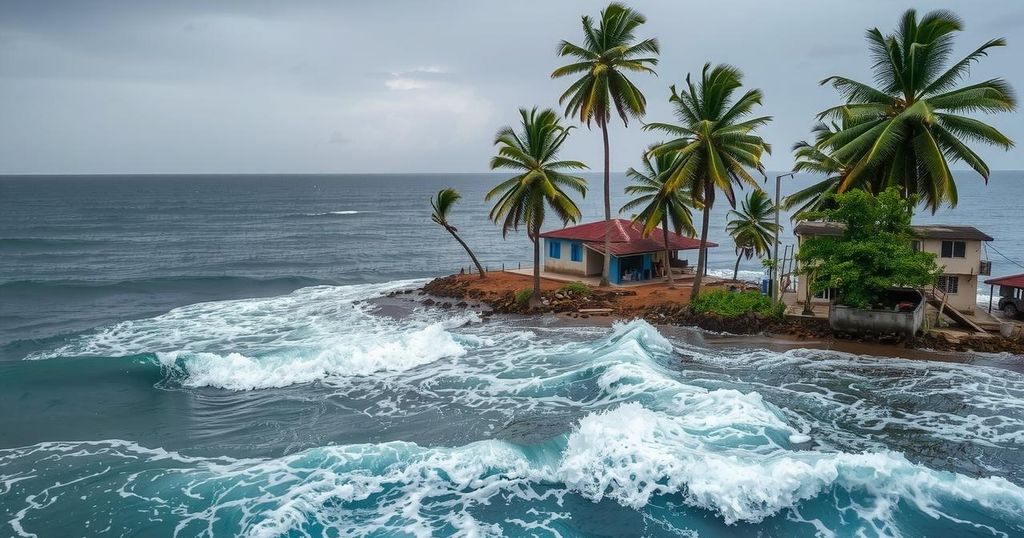Global news
AFRICA, ATLANTIC OCEAN, CABO DELGADO, CHI, CHIURE, EMERGENCY RELIEF, EMERGENCY RESPONSE, INDIAN OCEAN, ISA, ISADORA ZONI, ISLAMIC STATE, MECUFI, MOZAMBIQUE, NATIONAL INSTITUTE FOR NATURAL DISASTERS, NATURAL DISASTER, NATURAL DISASTERS, UNITED NATIONS, UNITED NATIONS ’ REFUGEE AGENCY, UNITED NATIONS OFFICE FOR THE COORDINATION OF HUMANITARIAN AFFAIRS, ZONI
Leila Ramsay
0 Comments
Cyclone Chido’s Death Toll Rises to 75 Amid Ongoing Crisis in Mozambique
Cyclone Chido’s death toll in Mozambique has risen to 75, nearly doubling previous counts. The storm devastated Cabo Delgado province, which is already dealing with an ongoing insurgency. Cyclone winds reached 115 mph as massive infrastructure damage left hundreds injured and numerous buildings destroyed. This disaster highlights the challenges posed by climate change and humanitarian crises affecting the region.
The death toll from Cyclone Chido in Mozambique has tragically increased to 75, nearly doubling previous estimates, as rescue operations reach previously cut-off areas. The storm struck Cabo Delgado province, already grappling with an ongoing insurgent conflict, leading to significant infrastructure destruction. The cyclone caused numerous casualties, injuring over 740 individuals, and overwhelming rural communities already displaced by conflict. One affected district, Mecufi, suffered intense devastation, with reports indicating that virtually all buildings were destroyed. Images reveal extensive damage to maternal health facilities and educational institutions, emphasizing the dire situation for those affected. The storm’s winds reached speeds of 115 miles per hour, comparable to a Category 3 hurricane. As Mozambique endures recurrent storms from the southern Indian Ocean, climate change appears to be exacerbating the situation, underscoring the country’s vulnerability to natural disasters and ongoing humanitarian crises.
Mozambique is among the nations heavily impacted by climate change, frequently encountering storms that disrupt lives and livelihoods. Cyclone Chido’s devastation falls within a troubling pattern of extreme weather events, often leading to loss of life and displacement. The Cabo Delgado province, in particular, is an area of instability due to prolonged insurgent conflict, precipitating further humanitarian challenges for its residents. In recent years, other tropical cyclones, such as Freddy and Gombe, have also inflicted significant casualties and exacerbated the plight of vulnerable populations in the region.
Cyclone Chido’s aftermath has intensified the already critical humanitarian crisis in Mozambique, reflecting the compounded challenges faced by populations affected by both conflict and climate change. The escalation in the death toll highlights the urgent need for rescue and rehabilitation efforts, particularly in regions that have been worse affected. As Mozambique braces for potentially more severe weather events, strategic measures must be taken to address the intersection of climate vulnerability and ongoing instability in the region.
Original Source: www.nytimes.com




Post Comment